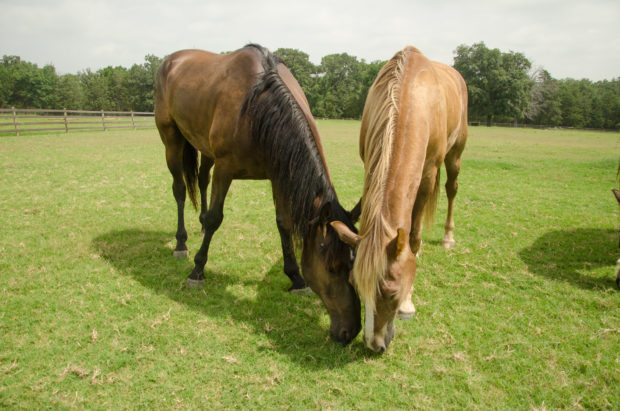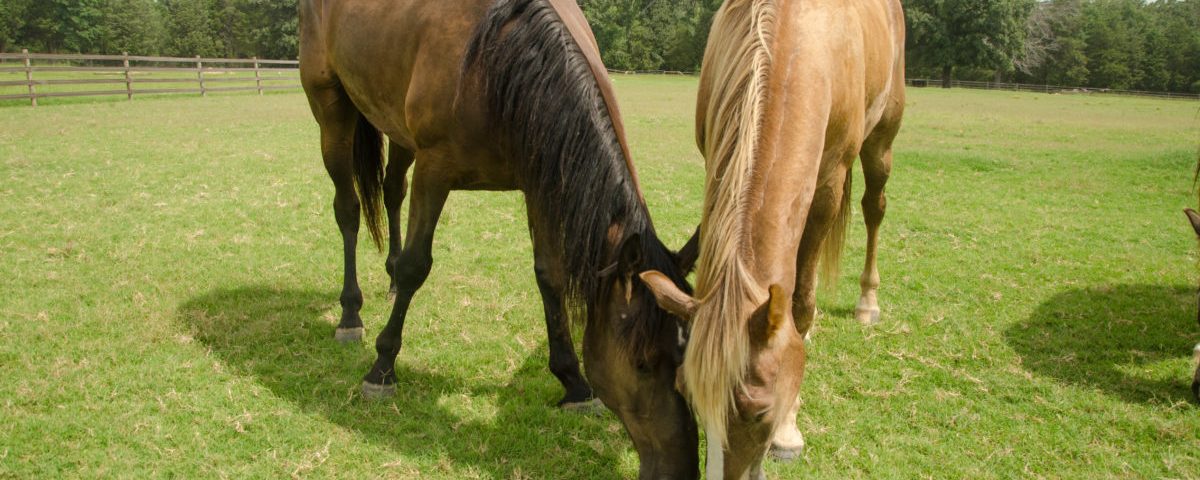Earlier in the month, a bipartisan group of 155 members of the U.S. House of Representatives wrote to President Trump, asking him to give final approval to a U.S. Department of Agriculture rule that got sidetracked during the last days of the Obama administration. The rule was designed to fix serious deficiencies in the USDA’s existing weak regulations that have long undermined enforcement of a 1970 law intended to crack down on the devious and cruel practice of horse soring. The letter is yet one more powerful show of strength in Congress for the idea of ending the routine cruelty perpetrated in a segment of the Tennessee walking horse show world where trainers and owners intentionally injure horses in order to cause them to exaggerate their gait for competition purposes. Horse soring is in the same league as cockfighting and dogfighting – knowingly and deliberately causing immense suffering to innocent animals for an entertainment spectacle.
Rep. Ted Yoho, R-Fl., an equine veterinarian, led the letter, with many lawmakers on both sides of the aisle joining him. In 2015-16, Yoho and fellow veterinarian Congressman Kurt Schrader, D-Ore., introduced the Prevent All Soring Tactics (PAST) Act, and it attracted 273 cosponsors in the House – nearly a two-thirds supermajority of the chamber. A companion bill in the Senate attracted 50 cosponsors – also a remarkable showing. The legislation has garnered endorsements from an overwhelming array of stakeholders.

Horse soring is in the same league as cockfighting and dogfighting – knowingly and deliberately causing immense suffering to innocent animals for an entertainment spectacle. Above, rescued walking horses at the Doris Day Equine Center. Photo by Frank Loftus/The HSUS
Yoho is an important champion as a large-animal veterinarian. He is a frequent proponent of rolling back regulations and other government actions, but here is a case where he says the government must step in. The industry has demonstrated it cannot be trusted with self-regulation. As The HSUS has demonstrated with multiple investigations, many walking horse training barns are dens of cruelty, with trainers wounding horses with caustic acids, cutting, chains, and other gruesome techniques to give them an artificially high step at competition. After Congress enacted the Horse Protection Act decades ago in an attempt to end these abuses, the horse soring crowd has knowingly defied federal law and systematically lied about it. They’ve lied so much for so many years that they seem to believe that they are not violating the law, even as trainers burn chemicals onto the legs of horses and place sharp foreign objects between the hooves and the heavy shoes they fit on the animals. They’ve been cheating, lying, deceiving, and covering up abuse for nearly a half century.
Yoho and others have said enough is enough. “As a veterinarian and lover of animals,” he wrote some weeks ago, “I feel the time is now to stop the practice of horse soring for good. I am not the only one who feels this way. Roughly 280 plus organizations, associations, veterinary and animal health advocates, horse industry professionals, and various other groups, support the ending of this unnecessary practice.”
The stalled regulation would eliminate the use of the large stacked shoes and ankle chains used to torment walking horses in the name of entertainment, and the industry’s failed self-policing system that the USDA’s own Officer of Inspector General deemed corrupt and ineffective in a 2010 report.
“In July 2016, the USDA issued a proposed rule including key reforms,” the lawmakers wrote to President Trump. “One-hundred and eighty-two Representatives and forty-two Senators sent letters strongly supporting the rule and urging that it be completed swiftly, along with more than 100,000 public comments from citizens supporting the rule. This rule was seven years in the making and has enjoyed continued bipartisan support in both chambers of Congress.”
The freeze on the rulemaking action on January 22nd was bad enough. But that injury was compounded when the USDA, without providing any advance public notice, took down en masse inspection reports and other records under the Animal Welfare Act and notices of violations under the Horse Protection Act less than two weeks into the Trump presidency.
With no secretary of agriculture overseeing USDA – former Georgia Gov. Sonny Perdue has been nominated but not confirmed yet – it’s been difficult to pin down who is responsible for this purge. We can only surmise that Protect the Harvest executive director Brian Klippenstein – selected by the Trump team to run the transition process at the USDA – had a role. Klippenstein works full time to thwart animal protection goals, and has campaigned against bills, ballot measures, and rules to crack down on puppy mills, horse soring operations, extreme farm animal confinement practices, and horse slaughter. It’s not much of a leap of logic to think that very soon after he assumed his important though temporary role at the USDA, he engineered a takedown of thousands of documents that show violations by horse trainers, puppy mills, roadside zoos, and others involved in animal-use industries.
We hope that President Trump reads the letter led by Rep. Yoho. If he does, he’ll have information to show that the horse soring crowd is a collection of lawbreakers. On the other side of them are not only every leading veterinary and horse industry organization, but also the National Sheriffs’ Association, and the Association of Prosecuting Attorneys. President Trump has been forthright in standing with law enforcement, and law enforcement officials have been clear that horse soring has to go. President Trump should stand with them when it comes to this kind of documented, long-standing, unambiguous animal abuse. He can drain this swamp with the stroke of a pen.
The post More than 150 Republican and Democratic lawmakers urge president to stop cruelty to horses appeared first on A Humane Nation.
Enviroshop is maintained by dedicated NetSys Interactive Inc. owners & employees who generously contribute their time to maintenance & editing, web design, custom programming, & website hosting for Enviroshop.
